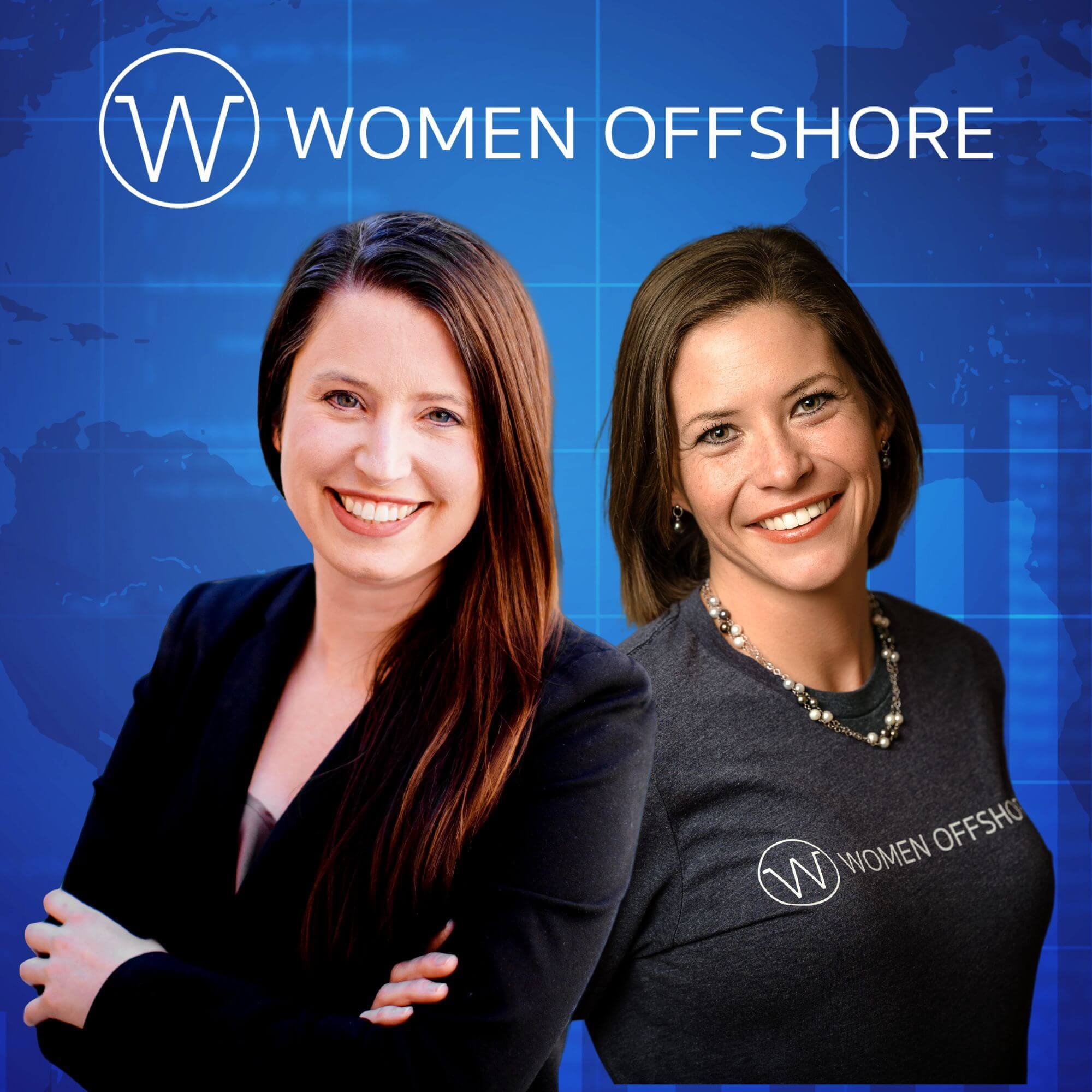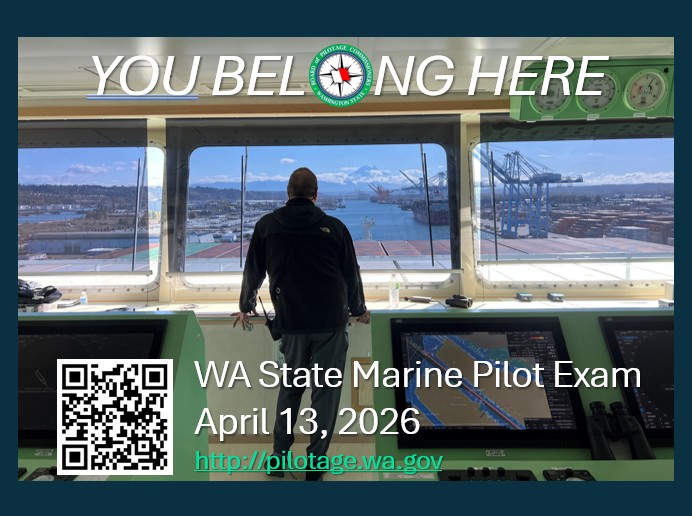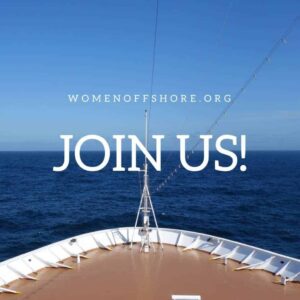Disclaimer: The following blog post discusses sensitive topics related to inappropriate behavior, harassment, and bullying experienced in the maritime industry. These subjects can be triggering for some readers. Please proceed with caution and remember that if you or someone you know needs support, there are resources available. Women Offshore is committed to providing a safe space for sharing and learning from one another’s experiences.

Offshore work is tough. It’s not just the long hours, the rough conditions, or being away from loved ones for weeks at a time. For women working in a male-dominated environment, the challenges go far beyond the physical. It can often feel like stepping into a crowded room where you’re not really seen, only noticed.
In response to a recent podcast episode where we discussed the challenges faced by women working offshore, many members of our Women Offshore community have bravely shared their personal stories. These experiences shed light on the difficult realities of being a woman at sea and offer invaluable insights into how to navigate inappropriate behavior, harassment, and workplace bullying.
In this blog post, we’ve compiled their advice and stories to help others who may be facing similar challenges. THE VOICES IN THIS POST ARE A TESTAMENT TO THE RESILIENCE, COURAGE, AND STRENGTH THAT WOMEN BRING TO THE OFFSHORE INDUSTRY.
Experience 1: Setting Boundaries and Speaking Up
One community member shared how, in their early years offshore, they were subjected to sexualized comments and unwanted advances from colleagues. After initially hesitating to report, they learned that speaking up and setting clear boundaries was the most effective way to regain control over the situation.
The responder explained that when inappropriate comments were made, they addressed the behavior immediately, saying things like, “I’m surprised you feel comfortable saying that out loud.” By confronting the inappropriate behavior with calm but firm statements, they were able to make it clear that the situation was not acceptable, without escalating it unnecessarily.
However, when a superior tried to kiss them, they were forced to take further action and report the incident. Although the grievance process was not as effective as hoped, they found strength in the process and grew from the experience, learning valuable lessons about the importance of self-advocacy.
Experience 2: Reporting and the Importance of Knowing Your Rights
Another responder emphasized the importance of speaking up and taking action when facing harassment or inappropriate behavior offshore. They pointed out the misconception that once a vessel is far offshore, the rules and regulations regarding misconduct no longer apply. However, U.S. Coast Guard regulations require all incidents of harassment, sexual harassment, or assault to be reported, regardless of the vessel’s location.
Knowing your rights and reporting incidents is crucial for both personal safety and the safety of others. The responder encouraged women to report such incidents without fear of retaliation, as there are dedicated entities in place to protect the well-being of seafarers at sea.
Experience 3: Dealing with Workplace Bullying and Isolation
A third responder shared their experience of dealing with workplace bullying from a superior, which escalated from verbal abuse to biased performance reviews. The hostile work environment caused them to isolate themselves and fear any interaction outside of their work duties.
After eventually reporting the issue, the company took action, and the individuals responsible were removed. However, the responder noted that this experience taught them the importance of speaking up, as the issue might have cost them not just their mental well-being but also their career if left unaddressed.
This experience highlights how harmful behaviors, when ignored, can perpetuate a toxic environment for all onboard. Reporting misconduct and addressing issues directly ensures that the work environment remains safe for everyone, not just the person directly affected.
Experience 4: Setting Clear Boundaries Early On
One woman shared that her approach to inappropriate behavior was to respond directly and set clear boundaries right away. She would confront individuals calmly but firmly, saying things like, “Do you really think that was an appropriate thing to say?” This directness not only put the responsibility back on the perpetrator but also helped to shut down further inappropriate behavior early on.
She also emphasized that when the behavior escalates or persists, reporting the issue to leadership or using the company’s QHSE (Quality, Health, Safety, and Environment) reporting system should never be off the table. Taking the initial step of reporting serves as important documentation, which can protect you and others.
Experience 5: Confronting Bullying and Seeking Support
Another responder shared a difficult experience from their first offshore job, where verbal bullying and emotional pressure from a higher-ranking colleague took a significant toll on their mental and physical health. Initially, the responder felt isolated and doubted their abilities, but with time, they learned to handle the situation differently.
With the knowledge and maturity, they have now, they would confront the individual directly, set boundaries, and report the situation immediately. They also emphasized seeking support from trusted colleagues and utilizing external resources, such as the ISWAN and Seafarer Support helplines, to ensure that you are not facing these challenges alone.
Experience 6: Personal Story of Harassment and Boundary Setting
One member of our community shared a deeply personal story about being harassed by a colleague who initially approached her on Snapchat under the guise of friendship. While she repeatedly refused his inappropriate requests, the situation escalated to threats that endangered her future career.
Her experience serves as a reminder that offshore environments can be unsafe, and women are often targeted, harassed, or pressured in ways that wouldn’t be tolerated on land. But her message to others in the industry is clear: you are not alone, and your voice matters. You have the right to stand up for yourself, set boundaries, and demand the respect and safety you deserve.
Helpful Resources:
- ISWAN (International Seafarers’ Welfare and Assistance Network): SeafarerHelp
- Seafarer Support: Seafarer Support Help Desk
For those who experience inappropriate behavior or violence at sea, these organizations offer confidential support and guidance.
The women who shared their stories remind us of the importance of speaking up, setting boundaries, and supporting one another in our professional lives. Working offshore is already a challenging and demanding career, and no one should have to face harassment, bullying, or discrimination in addition to those challenges.
We must continue to share our experiences, stand our ground, and make space for more women offshore—not just to survive, but to thrive and lead. Together, we can help make the offshore industry a safer, more inclusive environment for everyone.
Because, WE BELONG HERE.










Recent Comments